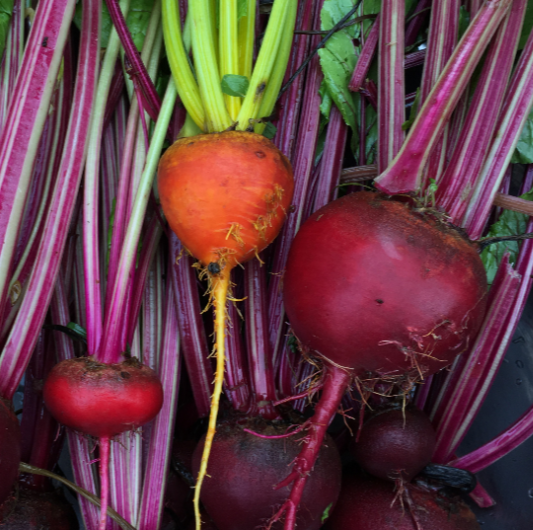Breakfast of Champions
Cliche as it may sound; breakfast really is the most important meal of the day. It sets the tone for your whole day. While we sleep, digestion slows (we fast while we sleep) to allow our bodies energy for repair by releasing growth hormone. Yes, it’s true! We do grow while we sleep no matter the age or stage of life we find ourselves. Sleep is particularly important for our children on the autism spectrum or other developmental and neurological disorders, who often suffer with inconsistent sleep patterns which hinder the development and healing of a neurological system already nutritionally compromised due to aversions to many whole foods as well as impaired digestion. Eating breakfast and in particular whole foods for breakfast, facilitates the healing of the gut and the brain and thus can improve mood, sleep patterns, close developmental gaps and overall improve quality of life for not only our children but the whole family.
So when choosing breakfast foods for our children, nutritional composition takes precedents over group. What I mean is, if your child hates eggs and gluten free oatmeal but loves chicken and rice, its okay to have just that for breakfast!! Throw the rules out of the door!! The major food groups that we grew up with are not really that important, but the basic components are bodies need to function at an optimal level are pertinent. These basic components are called macro-nutrients and they are in all the foods we consume, just at variable compositions. Every food we take in contains proteins, carbohydrates, and fats. Proteins and carbs eaten together are a part of a complete breakfast. Our brains use carbohydrates as energy only and proteins are extremely important in all bodily functions from cell repair, making hormones, to aiding in the slow digestion of carbs to allow blood sugar to stay steady for longer periods of time controlling appetite, hunger, maitaining energy level and ultimately development and mood.
For children with food sensitivities and allergies kids, eating gluten- free whole grain complex carbohydrates and minimally processed proteins is critical in ensuring smooth digestion and overall healing of the gut. These foods keep blood sugar at a steady level, avoiding the spikes and dips or extreme peaks and valleys in blood sugar levels often associated with most cereals, bagels, pastries, granola and cereal bars and just about every commercialized breakfast food on the market. These foods are often high in sugar, the worst kind, high fructose corn syrup, and preservatives and colorings, are neurotoxic attributing to hyperactivity, low attention span, mood swings (acting out) and if consumed over long periods of time can increase risk of juvenile diabetes and high cholesterol for all, children and adults alike. Since our children’s brain health is already compromised, consuming commercialized processed foods such as the ones mentioned can be detrimental causing further and more serious problems down the road that could even contribute to regression. As parents we want the best for our children no matter the stage of development and food is the one thing we can control. I hope you feel empowered to use food as medicine, the way it was intended.
Here is a list of great food options for breakfast, combine protein, carbs and fats in any combo that best suits you. And when you can, please purchase organic.
Minimally Processed Proteins
Fish,Chicken,Turkey,Sausage/Bacon(beef, turkey, chicken, veggie)
Eggs
Hemp/Almond Milk
Nuts and Seeds
Beans and Legumes(peas,etc.)
Nut/Seed Butters
Fermented Soy
sorghum, garbanzo bean, almond, cashew and other nut and bean flours ( for pancakes, waffles, biscuits, muffins etc)
Gluten-Free Complex/Whole Grain Carbohydrates
Brown Rice
Wild Rice
Quinoa
All Fruits
All Vegetables
Sweet Potatoes
Potatoes
Non-GMO Organic Corn/Popcorn/Corn Cereal
Puffed/Crisped Rice Cereal
Rice/Oat Milk
Brown Rice/Quinoa/Corn/Oat Flour
Organic Dried/Freeze Dried Fruits/Vegetables
Fruit and Vegetable Smoothies
Rice/Corn/Quinoa Cakes
Gluten-free/Casein-free breads, muffins, pancake/waffle mixes and cereal and granola bars, etc
Good Fats
Coconut oil
Eggs
Macadamia nuts
Pecans
Hazelnuts
Avocado
Almonds, raw
Extra virgin olive oil
Avocado oil
Safflower oil
Sunflower oil
Sunflower seeds, raw kernels
Pistachios, raw kernels
Cashews, raw
Almond butter, unsalted
Olives, Kalamata
Salmon, cooked
Mackerel, cooked
Herring, cooked
Trout
Tuna, fresh, yellowfin, cooked
Sardines, canned in oil, drained with bones
Walnuts
Ground flax seed
Flaxseed oil
Hemp seeds, shelled
Hemp oil
Pumpkin seeds, dried kernels (pepitas)
Sesame seeds, whole, dried or roasted
Fermented Tofu
Food Additives to Avoid
Nitrates/Nitrites
MSG (Monosodium Glutamate) and its cousin Disodium Guanylate, etc
Sulfites
High Fructose Corn Syrup (also Corn sugar) and it’s “healthy cousin” Agave Nectar
Large amounts of sugar
BHT
Artificial Coloring
Dyes
Artificial Flavorings
Partially Hydrogenated Oil/Trans Fat
Sodium Benzoate
To see a more extensive list check out Panera's No No List of Additives
For more information on some of my favorite nutrients for all children, check out my Pediatric Nutrition Gut and Brain Support Protocol.




